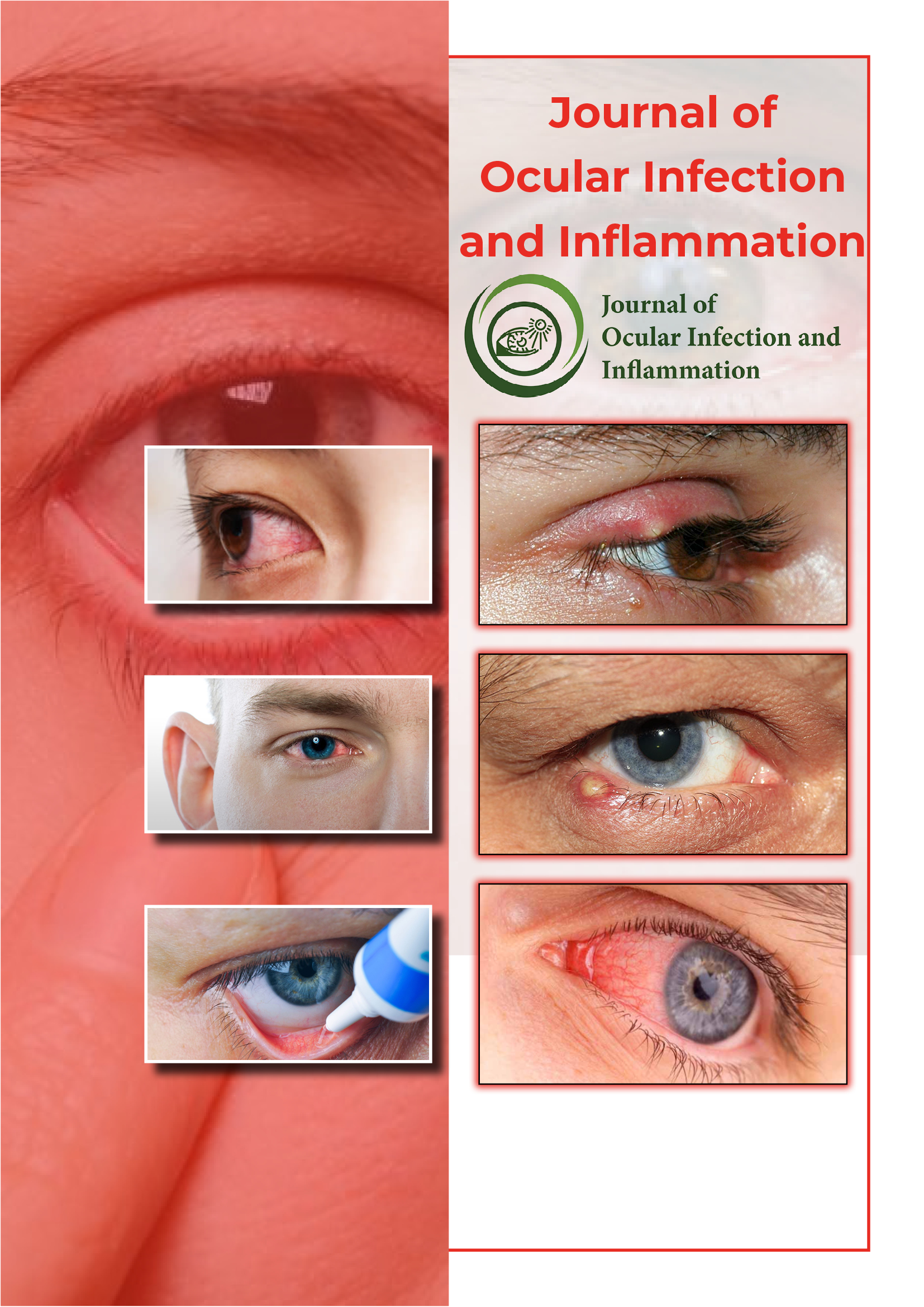Useful Links
Share This Page
Journal Flyer

Open Access Journals
- Agri and Aquaculture
- Biochemistry
- Bioinformatics & Systems Biology
- Business & Management
- Chemistry
- Clinical Sciences
- Engineering
- Food & Nutrition
- General Science
- Genetics & Molecular Biology
- Immunology & Microbiology
- Medical Sciences
- Neuroscience & Psychology
- Nursing & Health Care
- Pharmaceutical Sciences
Commentary - (2025) Volume 6, Issue 1
The Role of Gut Microbiota Dysbiosis in Ocular Surface Inflammation
Drishti Menon*Received: 26-Feb-2025, Manuscript No. JOII-25-29238; Editor assigned: 28-Mar-2025, Pre QC No. JOII-25-29238 (PQ); Reviewed: 14-Mar-2025, QC No. JOII-25-29238; Revised: 21-Mar-2025, Manuscript No. .JOII-25-29238 (R); Published: 28-Mar-2025, DOI: 10.35248/JOII.25.06.128
Description
The chemistry between systemic health and ocular function has long been acknowledged, but only recently has research begun to explore the detailed impact of gut microbiota on eye disease. The human gastrointestinal tract is home to trillions of microorganisms, which collectively form a complex ecosystem known as the gut microbiota. These microorganisms contribute significantly to immune regulation, metabolic functions and mucosal homeostasis. Disruption of this delicate microbial balance known as dysbiosis has been implicated in several systemic diseases and growing evidence suggests a similar influence in ocular inflammatory conditions.
Dysbiosis is increasingly recognized as a contributing factor to ocular surface disorders, including dry eye disease, allergic conjunctivitis and even autoimmune-mediated uveitis. In these disorders, the disruption of gut microbial populations appears to promote systemic low-grade inflammation, which in turn affects immune tolerance and ocular surface homeostasis. The gut-eye axis, an extension of the better-known gut-brain axis, suggests that metabolites and inflammatory mediators generated in the gastrointestinal tract can enter systemic circulation and reach distant organs such as the eyes.
In experimental models, fecal microbiota transplantation from healthy animals into those with ocular inflammation has led to reduced inflammation and improved clinical outcomes, further strengthening the causal association. Mechanistically, bacterial metabolites like Short-Chain Fatty Acids (SCFAs) produced by gut bacteria play a crucial role in modulating the immune response. SCFAs such as butyrate and propionate are known to support regulatory T cell development and inhibit Th17 cell differentiation, thus maintaining immune tolerance. A deficiency in these metabolites due to dysbiosis could tilt the immune balance towards pro-inflammatory pathways, contributing to chronic ocular inflammation.
Additionally, the gut microbiome affects mucosal immunity through the modulation of dendritic cells, macrophages and epithelial integrity. Breakdown in these regulatory mechanisms can result in increased mucosal permeability, sometimes referred to as "leaky gut," which allows bacterial endotoxins such as Lipopolysaccharide (LPS) to enter the bloodstream. LPS is a potent activator of the innate immune response and has been found in higher concentrations in patients with ocular autoimmune conditions, suggesting that systemic end toxemia may act as a trigger for ocular inflammation.
Dietary interventions offer a capable avenue to manipulate the gut microbiota for therapeutic gain. Diets high in fiber and fermented foods have been shown to increase SCFA production and improve microbial diversity. Probiotic supplementation, particularly strains of Lactobacillus and Bifidobacterium, has demonstrated beneficial effects on ocular symptoms in several small clinical trials. These interventions, while still preliminary, highlight the potential for gut-targeted therapies to complement conventional ocular treatments.
Despite these capable developments, several experiments remain. Most studies involving gut dysbiosis to ocular inflammation are observational and establishing causality remains difficult. Moreover, inter-individual variability in microbiota composition complicates the development of standardized treatments. Large-scale, longitudinal studies are needed to better define the microbiome signatures associated with specific ocular diseases and to test the efficacy of microbiota-modulating therapies. The role of gut microbiota in ocular surface inflammation represents a frontier in ophthalmic research. As understanding of the gut-eye axis evolves, new diagnostic and therapeutic strategies may emerge to target the root causes of inflammation rather than just the symptoms. Restoring microbial balance through diet, probiotics, or even fecal microbiota transplantation may offer a novel adjunctive pathway for managing chronic ocular conditions. Recognizing and treating dysbiosis may soon become an integral part of personalized medicine in ophthalmology.
Citation: Menon D (2025) The Role of Gut Microbiota Dysbiosis in Ocular Surface Inflammation. J Ocul Infec Inflamm.06:128.
Copyright: © 2025 Menon D. This is an open-access article distributed under the terms of the Creative Commons Attribution License, which permits unrestricted use, distribution and reproduction in any medium, provided the original author and source are credited

